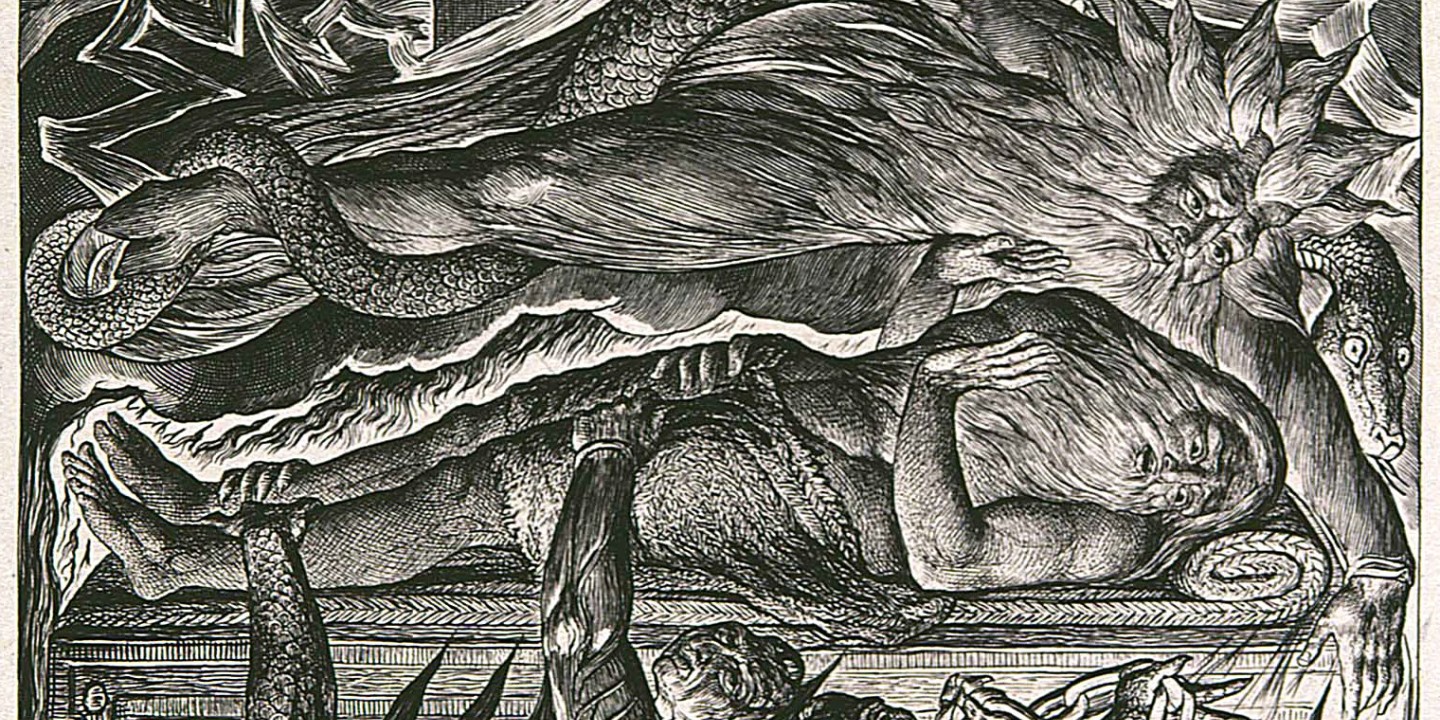My friends are praying for me. Does God care?
God’s response to Job is cold comfort when you have terminal cancer.

Since I went public about my brain cancer a couple of months ago, I’ve had many people of many faiths offer prayers for me. Some said they were hoping to nudge the Almighty to heal me.
I appreciate every such message. After all, glioblastoma is tough. The median survival rate is only a few months more than a year. Maybe my friends could offer God some reasons to boost my survival odds?
But I’ve been a reporter for a long time. I chew on any such broad claim, thinking about whether there are valid rebuttals.
So for me this has been a wry reminder of what I’ve read in the book of Job, a rollicking narrative that includes colorful settings, sarcastic arguments, and an answer that turns away from a lot of Jewish and Christian traditions.
Job is a pious and wealthy guy with a big family who has done many good things for other people. One day, God points out what a great and good fellow Job is to one of his divine subordinates.
“Ha satan” is not like the Satan in other faith traditions. He’s an adversary, yes, but something like a prosecuting attorney. There’s zero hint of him being evil or supervising an eternal hell. This Satan tells God that Job may be doing the right things only because he’s so comfortable.
God, who doesn’t respond that divine omniscience means always winning a bet, gives ha satan permission to test Job by whacking his wealth, killing a lot of his family, and ruining his health.
Job never blasphemes in response. Not even once. Some of his friends show up to discuss what’s going on. They insist Job surely did something wrong to deserve God’s imposition of suffering.
Nope, says Job, who also points out that not only do some other good people suffer, but some nasty people live happily and well. He wants God to explain why. But God’s response is almost no answer.
Why do bad things happen to good people? Why do good things happen to bad people? God lists the many divine deeds that people can’t possibly fathom. Don’t bother arguing, God basically says, because you can’t possibly understand how God sees what’s happening.
At the very end, God tells Job’s buddies that they said all kinds of false things to justify why Job had suffered. And God gives Job back his wealth and comfort. He dies at age 140, “old and contented.”
Job makes a worthy point, no matter one’s specific theological beliefs: Job says he does what’s right because it’s right, not because he expects a reward. I’ve tried to follow that and will keep trying on my way to the Egress.
I’m totally grateful for the support some friends are giving me. But does God care about such prayers? I think the book of Job says even those who believe in the Almighty 100 percent can’t necessarily figure out what God might be doing or why. So in addition to the gratitude, I’ll hold onto a smidge of hope that I might also die “old and contented.”
Read Jason Micheli's reply, “Prayer isn’t our work, it’s God’s.”
A version of this article appears in the April 12 print edition under the title “My doubts about prayer.” It first appeared as an entry in the author's column for Religion News Service, My Way to the Egress.




